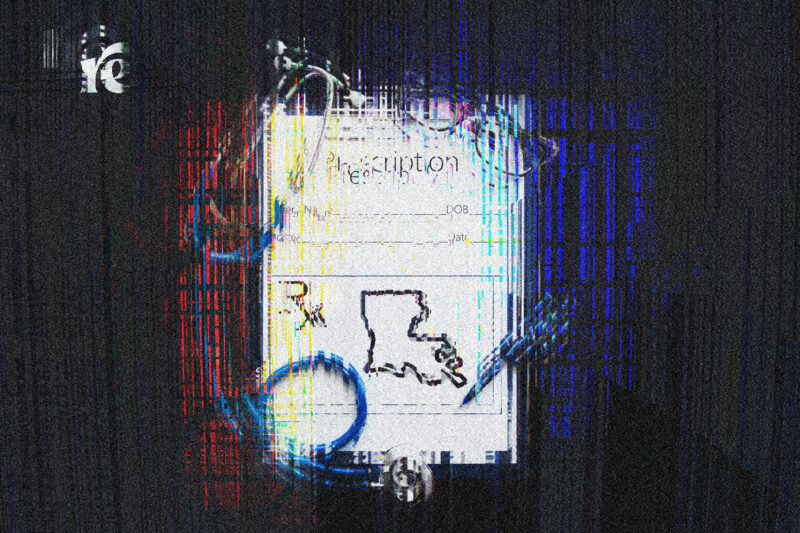The ‘War on Drugs’ Is Here for Abortion Pills
Louisiana just upped the ante on criminalizing pregnancies by taking the attacks on abortion pills a step further

This piece first appeared in our weekly newsletter, The Fallout.
While we’re waiting for the Supreme Court to rule on the scope of mifepristone access nationwide, Louisiana lawmakers have taken matters one step further by classifying medication abortion drugs as “dangerous” and “controlled” substances, laying the groundwork for the additional surveillance and harassment of abortion providers and patients.
SB 276 is first-of-its-kind legislation that adds mifepristone and misoprostol to the list of controlled substances under Louisiana’s “Uniform Controlled Dangerous Substances Law.” By reclassifying the drugs as Schedule IV narcotics, lawmakers are effectively treating the medications the same as high-powered prescription opioids and benzodiazepines. The resulting classification will hinder access and create opportunities for law enforcement to muck around in abortion provision.
The law will make it much harder for patients to obtain the medications and for providers to prescribe them. Simply put, SB 276 is an alarming escalation in the attacks on medication abortion that fully brings the legal apparatus of the war on drugs to abortion pills.
Like every current abortion restriction, the Louisiana law, which is set to take effect October 1, is a solution in search of a problem. For starters, state law requires medication abortion to be provided in-person and not via telehealth, so reclassifying the drugs as Schedule IV narcotics simply makes them more difficult for providers to prescribe and more onerous for patients to access. For example, the heightened classification means only doctors with specific licenses will be able to prescribe mifepristone and misoprostol.
Additionally, classifying both drugs as Schedule IV substances impacts where and how the medications can be stored, which could devastate whatever limited abortion access remains in the rural parts of the state. The law is also vague and confusing, which will only further scare providers who are trying their best to serve their patients.
The legislation is also a ruse. SB 276 creates an entirely new class of abortion-related crime, one called “coerced criminal abortion by means of fraud.” These are situations where a third party—say a current or former partner—slips abortion pills to someone without their knowledge or consent in an attempt to end their pregnancy (this happened in Massachusetts earlier this month).
That’s reproductive coercion, and it’s a terrible violation when it occurs. And guess what? The criminal justice system already has laws on the books to address those nonconsensual situations that don’t require reclassifying abortion pills as dangerous and controlled substances. All SB 276 will accomplish—in addition to further chilling abortion access in the state—is sweeping even more vulnerable Louisianans into the carceral system and reframing one of the safest medical procedures in the country as illicit and dangerous.
Importantly though, the bill does not criminalize pregnant people who possess the drugs without a prescription and for their own use. So that means that folks in Louisiana can, on paper, still self-manage abortions. But they must do so in a climate where the full power of law enforcement will soon be directed at medication abortion provision.
Between this and the “abortion trafficking” legislative nonsense making its way through states like Idaho, one of the clearest throughlines in the post-Dobbs era is just how much power ending Roe v. Wade gave to local law enforcement. And I worry we’re nowhere near the end of their attempted power grabs.
